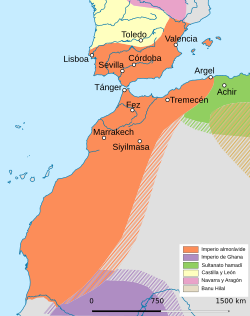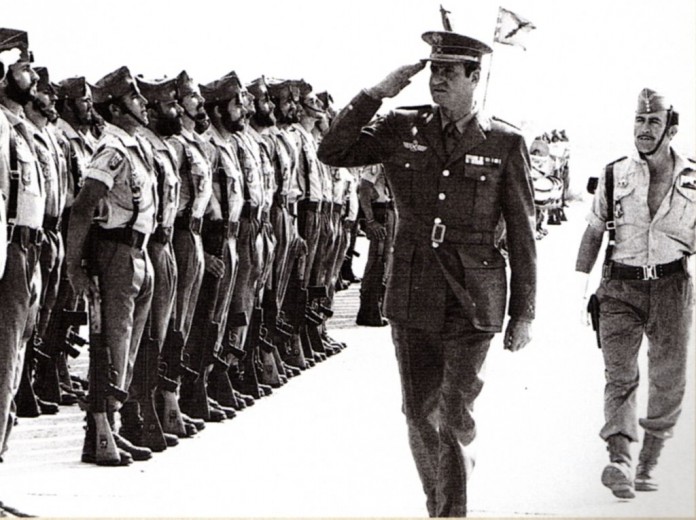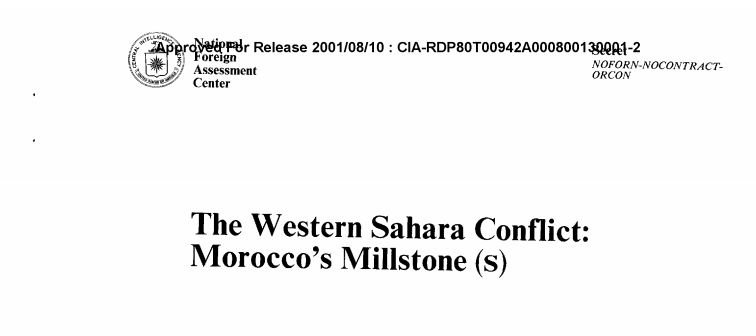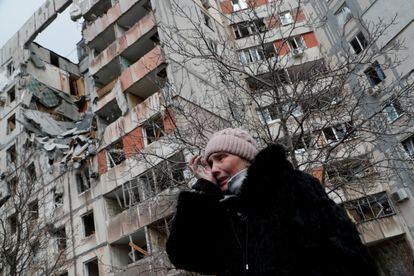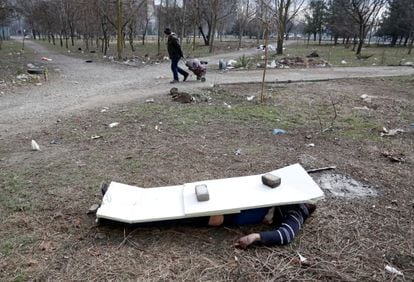Montuno
...como el Son...
España vuelve a abandonar el Sáhara :
https://www.google.com/amp/s/www.lav...ahara.amp.html
ANÁLISIS
El Sáhara Occidental es la única colonia africana que no ha tenido derecho a la autodeterminación
 Dos niños en un campo de refugiados del Sahara Occidental.
Dos niños en un campo de refugiados del Sahara Occidental.
Manuel Lorenzo / Terceros
XavierMas de Xaxàs
Barcelona
19/03/2022 00:55Actualizado a 19/03/2022 10:19
El Sáhara Occidental es la única colonia africana que no ha tenido derecho a la autodeterminación, y parece que no lo tendrá. El apoyo de Argelia y de España no ha sido suficiente para conseguirlo, mientras que la ONU no tiene fuerza para imponer a Marruecos un referéndum sobre el futuro de este territorio, especialmente desde que EE.UU. reconoció en el 2020 que era marroquí.
A cambio de la autodeterminación, Marruecos ofrece una amplia autonomía a sus “provincias del sur”, eufemismo con el que designa al territorio saharaui que ocupa de forma ilegal desde la salida de España en 1975. Washington cree que es una propuesta “seria, creíble y realista” para solucionar el conflicto, y desde ayer Madrid está de acuerdo.
Madrid prefiere apoyar a Marruecos y EE.UU., mientras que Argelia piensa en el gas que venderá
España quiere recuperar la sintonía diplomática con Marruecos, muy deteriorada desde hace casi un año, cuando accedió a que el líder del Frente Polisario, el brazo armado de la resistencia saharaui, se tratara en Logroño de la covid. A cambio, podrá proteger mejor sus intereses económicos el reino alauí. España es su primer socio comercial, preeminencia que, sin embargo, nunca ha sabido trasladar a la relación política.
Argelia, sostén del Polisario, se opone a la autonomía y apoya la resistencia armada. El alto el fuego de 1991 saltó por los aires hace dos años. Los saharauis tienen razón en apuntar que solo servía para asentar el statu quo, es decir, para que Rabat siguiera marroquinizando el Sáhara.
Argelia es una república populista y militarizada. Marruecos es una monarquía absolutista y conservadora. El Polisario es una organización revolucionaria de inspiración marxista.
Marruecos y Argelia, con las relaciones rotas desde agosto, pugnan por la hegemonía en el Magreb, así como por el control de los fosfatos y los bancos de pesca del Sáhara. Los saharauis, rehenes de esta disputa económica, ideológica y estratégica, nunca han sido dueños de su destino. Sus opciones son terribles: pueden seguir malviviendo en el desierto argelino sin opciones de ser un país o pueden regresar a Marruecos, donde, a pesar de lo que diga Estados Unidos, serán ciudadanos de segunda clase.
España, que ya los abandonó en 1975, vuelve a hacerlo ahora. Considera que debe hacerlo. No solo para mejorar la sintonía con Marruecos sino también para apoyar a EE.UU. y tener un papel clave en la nueva estrategia energética de la UE que, de alguna manera, deberá sustituir el gas ruso por el argelino. La nomenklatura militar en Argel hace cuentas y, aunque proteste en público, se beneficiará en privado.
Participa en el Debate Las relaciones entre España y Marruecos
PARTICIPACIÓN

https://www.google.com/amp/s/www.lav...ahara.amp.html
ANÁLISIS
El Sáhara Occidental es la única colonia africana que no ha tenido derecho a la autodeterminación

Manuel Lorenzo / Terceros
XavierMas de Xaxàs
Barcelona
19/03/2022 00:55Actualizado a 19/03/2022 10:19
El Sáhara Occidental es la única colonia africana que no ha tenido derecho a la autodeterminación, y parece que no lo tendrá. El apoyo de Argelia y de España no ha sido suficiente para conseguirlo, mientras que la ONU no tiene fuerza para imponer a Marruecos un referéndum sobre el futuro de este territorio, especialmente desde que EE.UU. reconoció en el 2020 que era marroquí.
A cambio de la autodeterminación, Marruecos ofrece una amplia autonomía a sus “provincias del sur”, eufemismo con el que designa al territorio saharaui que ocupa de forma ilegal desde la salida de España en 1975. Washington cree que es una propuesta “seria, creíble y realista” para solucionar el conflicto, y desde ayer Madrid está de acuerdo.
Madrid prefiere apoyar a Marruecos y EE.UU., mientras que Argelia piensa en el gas que venderá
España quiere recuperar la sintonía diplomática con Marruecos, muy deteriorada desde hace casi un año, cuando accedió a que el líder del Frente Polisario, el brazo armado de la resistencia saharaui, se tratara en Logroño de la covid. A cambio, podrá proteger mejor sus intereses económicos el reino alauí. España es su primer socio comercial, preeminencia que, sin embargo, nunca ha sabido trasladar a la relación política.
Argelia, sostén del Polisario, se opone a la autonomía y apoya la resistencia armada. El alto el fuego de 1991 saltó por los aires hace dos años. Los saharauis tienen razón en apuntar que solo servía para asentar el statu quo, es decir, para que Rabat siguiera marroquinizando el Sáhara.
Argelia es una república populista y militarizada. Marruecos es una monarquía absolutista y conservadora. El Polisario es una organización revolucionaria de inspiración marxista.
Marruecos y Argelia, con las relaciones rotas desde agosto, pugnan por la hegemonía en el Magreb, así como por el control de los fosfatos y los bancos de pesca del Sáhara. Los saharauis, rehenes de esta disputa económica, ideológica y estratégica, nunca han sido dueños de su destino. Sus opciones son terribles: pueden seguir malviviendo en el desierto argelino sin opciones de ser un país o pueden regresar a Marruecos, donde, a pesar de lo que diga Estados Unidos, serán ciudadanos de segunda clase.
España, que ya los abandonó en 1975, vuelve a hacerlo ahora. Considera que debe hacerlo. No solo para mejorar la sintonía con Marruecos sino también para apoyar a EE.UU. y tener un papel clave en la nueva estrategia energética de la UE que, de alguna manera, deberá sustituir el gas ruso por el argelino. La nomenklatura militar en Argel hace cuentas y, aunque proteste en público, se beneficiará en privado.
Participa en el Debate Las relaciones entre España y Marruecos
PARTICIPACIÓN









